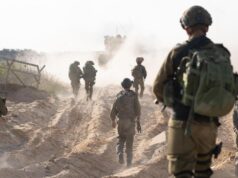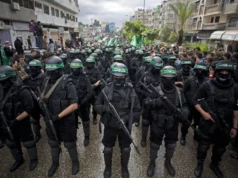Terrorist attacks early Sunday morning in Pakistan continue to impede the government’s plan for peace talks with domestic Taliban fighters. Two suicide bombers killed at least 80 and wounded some 120 people in a Christian church in the northern city of Peshawar. News sources have called the incident the largest attack on Christians in the predominantly Muslim country. Both the Pakistani public and government officials have now expressed doubt that negotiations will be able to move forward. Within hours of the bombing, Prime Minister Nawaz Sharif acknowledged the need for a tougher stance against the militants and said the government will face difficulties engaging with violent jihadists.
Just two weeks ago, the Prime Minister won a major victory when 12 major political parties endorsed fresh negotiations with Tehrik-e-Taliban Pakistan (TTP), an umbrella organization encompassing more than 30 militant groups. In the spring, Sharif campaigned on a platform of engaging the Pakistani Taliban, outlining as his priority an end to years of violence that have left 50,000 people dead and his goal of revitalizing the country’s stru

Pakistanis gather coffins for victims of the Peshawar church bombing. (Photo: Bilawal Arbab, EPA) |
The Pakistani Taliban’s Supreme Council issued two preconditions to a cease-fire testing the governments resolve even before talks began. The militants want Islamabad to release Taliban prisoners and withdrawal of the Pakistani military from tribal regions bordering Afghanistan. To further complicate the situation, Pakistan’s powerful army opposes negotiations with the Taliban, citing the failures of previous attempts.
The rocky start to Pakistan’s peace process parallels similar attempts at dialogue in Afghanistan. Just months ago the Obama administration attempted to initiate a dialogue between Afghan President Hamid Karzai and Afghan Taliban leaders, but the planned discussions fell through shortly after the Taliban publicly challenged the legitimacy of the Afghan government. NATO forces continue to feel the effects of the failed political reconciliation, with three more U.S. soldiers dying in an insider attack Sunday.
While the Afghan and Pakistani Taliban claim to be unaffiliated with one another, fighters move back and forth through porous borders from sanctuaries in Pakistan with relative ease. Western governments are concerned that when NATO forces depart, Pakistani Taliban could assist Afghanistan’s insurgents in overthrowing the government in Kabul. Taliban fighters throughout the region possess little incentive to compromise now, as their political influence and military strength will only increase with the departure of NATO forces at the end of 2014.





